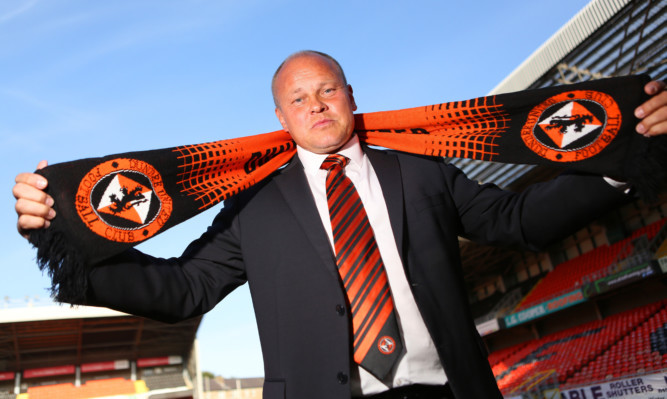Appointing a football manager is like spinning the roulette wheel.
As Dundee United discovered last week, even trying to get permission to speak to potential candidates is a gamble.
In one case they met a firm refusal from a chairman, another chairman wouldn’t talk to them personally.
Before the vexed issue of compensation is even broached, a deal can be dead in the water depending on the negotiating stance of other clubs.
Then there’s the tricky business of arranging a secret venue without being seen with a potential new boss; an almost impossible task, as eagle-eyed Dundee bin lorry workers proved, by spotting Mixu Paatelainen at the United chairman’s house.
Choosing the right candidate is a throw of the dice.
Success at one club might not translate to another; any appointment is a gamble.
The interview process itself is the key element.
Can the chairman and potential manager work together?
Is the chemistry right to ensure a sound relationship?
Some candidates fall by the wayside quickly, with interviewers sensing that the drive, desire and energy needed for the job is absent.
Others will fail at a much earlier stage, where third party inquiries which allow “plausible deniability”, reveal a lack of experience, nous, ideas, or perhaps just a lack of interest from the target.
Vacancies are also a sure-fire way for out-of-work managers to remind everybody that they are still in the game.
Unemployed bosses get forgotten about very quickly and need to refresh the memories of clubs and their supporters.
Agents will let it be known discreetly that their man is in with a shout, irrespective of the truth of the matter, since that keeps his name in the public domain.
A successful manager will usually find that being linked with another job will also boost his value to his current employer.
If he plays his cards close to his chest a substantially improved contract may be secured at his present club.
The biggest conundrum is whether to go for experience or youth.
That can be dependent on the size of the club, their recent experiences with previous managers, budget and also in Dundee United’s recent case, position in the league.
The decision is fraught with danger. Supporters say there is a managerial mafia with the same faces endlessly re circulated.
That is the same though in any trade or profession.
It is easy and glib to say take a chance on a young rookie or someone with no managerial experience at all.
Relegation and catastrophic financial consequences could result from an ill thought out appointment, as of course they equally could with an experienced hand at the tiller.
There is no exact formula for making the right appointment.
If there was one, every club would have it.
No club wants to appoint a dud who will fail, but many do just that because it is an inexact science.
So many variables are involved that the chairman and board making the decision cannot afford to arrive at it on a whim, or without factoring in all available information.
The wrong appointment can be financially disastrous.
Welcome to the football lottery.
